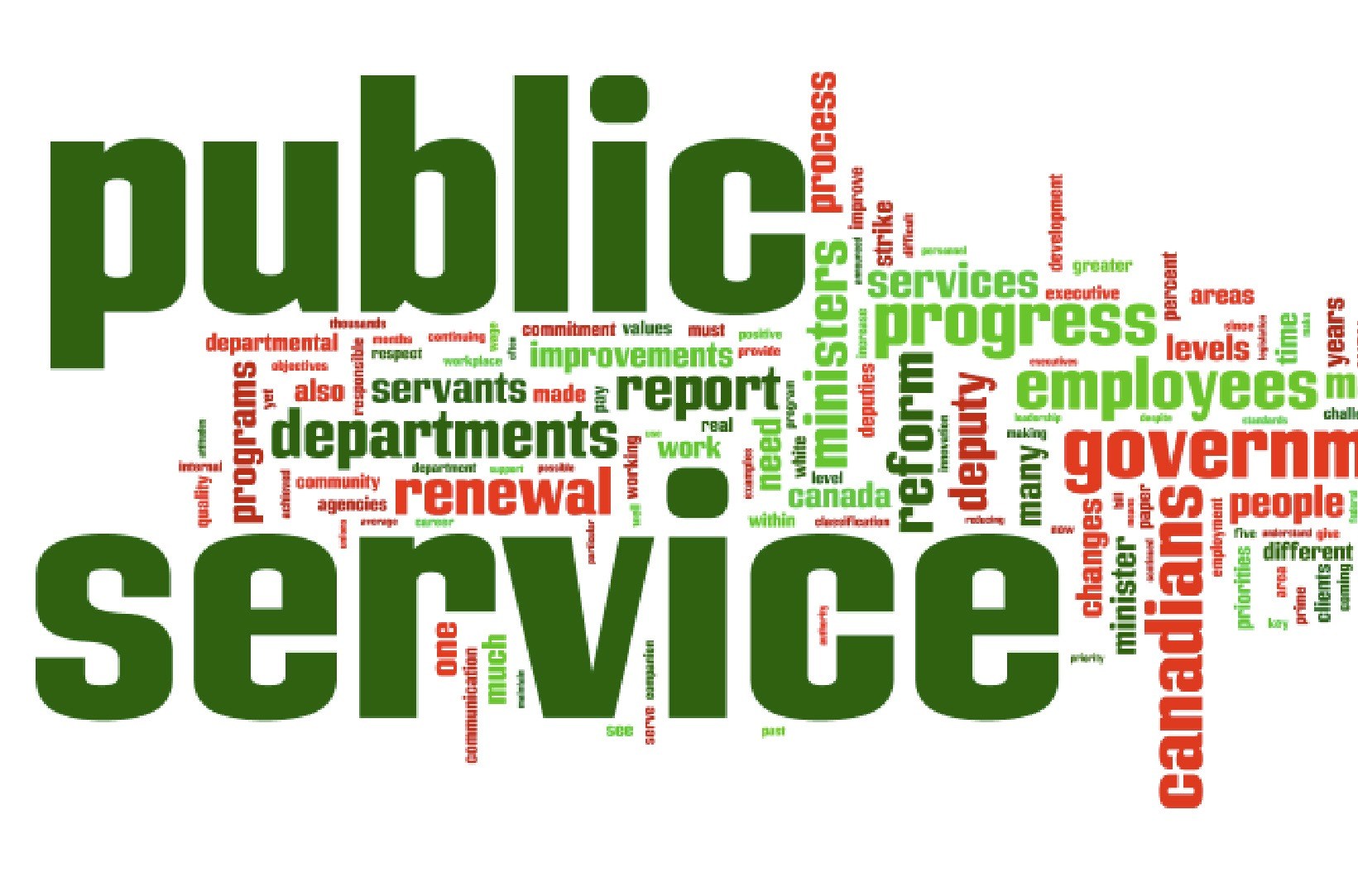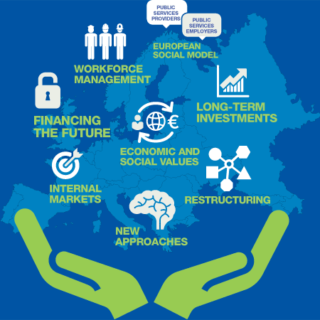PUBLIC SERVICES
Public Sector and Social Sector units consist of various important industries like financial, natural resources and infrastructure in different countries. These units aim to achieve a dual objective of working for the benefits of the society as well as competing with other private players to make sustainable profits. Every step taken by this industry has significant impact on the lives of large number of people. It makes the role of these organizations very important in the sustained inclusive development of the economy. With the increased emphasis by private sector on developing core competencies to remain profitable, public sector has shifted focus on optimizing operations and collaborating with private sector to build competencies.
Key trends shaping the industry:
Increasing efficiency through technology: Public sector units have started to implement cutting edge technologies in their work so as to realize maximum benefits from their investments. System complexity is also increasing that will need systematic approach to improve performance.
Subsidy changes: Many concessional grants are given by Public Sector for different people based on the requirement for their services. These vary widely over time and environmental conditions. It directly affects the demand and supply balance in the system.
Challenges facing the players involved in the industry:
Increasing competition: Public sectors units compete with private players in open space specially if there are no subsidies/concession benefits. Therefore, they need to continuously improve and maintain their profitability to stay in competition.
Customer power: Direct competition from private players has given more choices to customers giving them flexibility to choose better options. To retain them, understanding of customer needs and developing capabilities to fulfill the requirements is important.
Vision for future: Demographic composition of a country changes cyclically over a period of time. Along with it, technological improvements and environmental changes lead to multifarious developments in the needs of the society. Systematic study to understand expected changes can help organizations to be better prepared for future.
We’re proud to have a long, successful and refreshingly transparent relationship with the public sector. Key to this has always been our understanding of the key issues our public sector partners face day in, day out. For some it’s improving efficiency and effectiveness whilst reducing operational costs. For others it’s gaining senior leadership engagement and support for improvement projects. While switching from functional to true end-to-end working remains an ever-persistent problem.
Challenge accepted
Through the delivery of our accredited training and coaching in Lean, operations management, stakeholder engagement and continuous improvement, we ensure our public sector clients achieve sustained change. More than that, we embed the skills they need to develop self-sufficiency in improvement work. In some cases this takes the form of project support and leadership. In others we concentrate on skills transfer, providing practical, instantly applicable training that can make a real difference, from the moment employees’ return to work. We also ensure people have the confidence to use the new tools at their disposal by providing coaching in continuous learning.
The results are in
From improvements in customer service and reduced waiting times, to first time handling of enquirers and complaints, our accredited training program’s continually deliver sustained change to our public sector clients. Furthermore, our efficiencies have enabled smaller teams to deal with larger volumes, in turn providing greater cost-effectiveness.
WHAT CAN WE DO FOR YOU?
We would be happy to discuss the project with you in person
The economic, social and political environment globally and in India seems to be continuously evolving. This may have led the government (leaders) to increasingly focus on transforming the manner in which citizen services are being delivered. Practices such as implementing thorough and transparent operations, a sustainable operating model, cost to serve and ensuring customer satisfaction, typically a domain of large corporations, is gradually seeping into government operations, but with an essence of social agenda. The need and resolve to be accountable towards one of the most important stakeholders: citizens, can be driving the government to relook at the entire value of chain of service delivery including, physical and digital infrastructure, health and social services and defence and public safety.


How can we help
We assist the government across each of these service elements through our integrated offerings with a focus on achieving responsiveness, flexibility and accountability towards addressing the needs of the citizens. Few of the services tailored to meet the specific needs of the government and public sector are:
-
Policy formulation and evaluation
-
Transformation and restructuring advisory
-
Infrastructure advisory Transaction services Business process services
-
Project management services
-
IT strategy and implementation management
-
Development and social services advisory
At the local level, arts and cultural development contribute to neighborhood commercial revitalization and the creation of economic clusters, involving collaborations between professional artists and communities based on a community’s desire to achieve artistic and social outcomes. Because nearly all communities have arts and cultural assets, arts and culture can be one of the most promising ways to increase local economic opportunity. We believe in the importance of promoting local artistic talents and in investing in the arts & culture industry.
TVET (Technical and Vocational Education and Training) is education and training which provide knowledge and skills for employment using formal, non-formal and informal learning. It is a crucial vehicle for social equity, inclusion and sustainable development.
Food safety is a scientific discipline describing handling, preparation, and storage of food in ways that prevent food borne illness. This includes a number of routines that should be followed to avoid potential health hazards. The principles of food safety aim to prevent food from becoming contaminated and causing food poisoning. This is achieved through a variety of different avenues such as, among others:
* Properly cleaning and sanitizing all surfaces, equipment and utensils
* Maintaining a high level of personal hygiene, especially hand-washing
* Storing, chilling and heating food correctly with regards to temperature, environment and equipment
* Implementing effective pest control
* Comprehending food allergies, food poisoning and food intolerance


